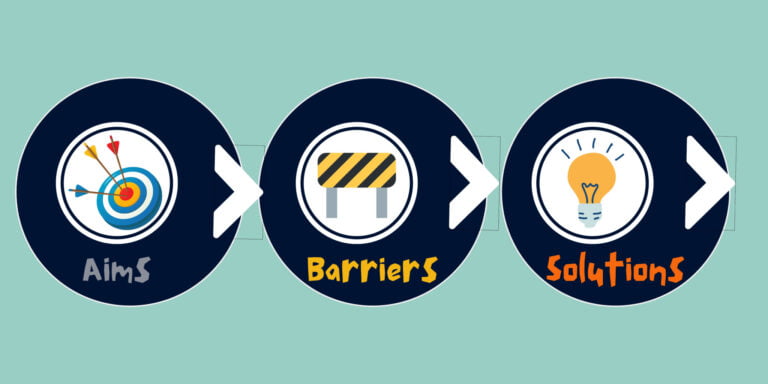
When David Marquet took charge of a nuclear submarine that he was unfamiliar with and it came with a crew that was highly demoralised, he had to think quickly. How could he improve engagement and also ensure the submarine was run safely, effectively and efficiently?
The answer was not to try and have all the answers. Marquet had the foresight to know that it was his crew that already had the answers he needed. By tapping into the collective knowledge of his people and empowering them to make more decisions he both improved engagement and took the submarine from ‘worst to first’, achieving the highest retention and operational standings in the Navy.
In today’s business landscape companies need to fully capitalise on their resources to give them a competitive advantage. Leadership demands that executives and their Organisations capture the potential of their people through the right diversity and inclusion formula.
With diversity of people comes diversity of thoughts, ideas and knowledge. But much like a bank vault full of gold, this wealth of knowledge is no good to anyone if you do not have the code to open the vault door and tap into these rich resources.
In the realms of diversity & inclusion, Inclusive Leadership could be thought of as the code that accesses the vault. Much like David Marquet with his submarine, an inclusive leader knows how to foster an environment where everyone engages and contributes to their full intellectual capacity and everyone is a leader in their own right, as opposed to the increasingly outdated command and control approach to leadership.
So if Inclusive Leadership is a critical key to success in any Organisation, what are the characteristics of an inclusive leader?
In a research study into Inclusive Leadership conducted by the Employers Network for Equality & Inclusion (enei), the report highlights 15 competencies that characterise an inclusive leader. These are:
- Individualised Consideration – showing individual interest and offering one-to-one support for people
- Idealised Influence – providing an appealing vision that inspires others
- Inspirational Motivation – encouraging others to develop ideas and to be challenging
- Intellectual Stimulation – encouraging creative thinking
- Unqualified Acceptance – showing acceptance of everyone without bias
- Empathy – being able to appreciate the perspective of others and endeavouring to understand how others feel
- Listening – truly listening to the opinions of others
- Persuasion – having an influence on people’s actions without force or coercion
- Confidence Building – providing positive feedback to boost people’s self-efficacy
- Growth – providing opportunities for all employees to realise potential, make autonomous and unique contributions and progress with the organisation
- Foresight – being able to consider the views of others about possible outcomes
- Conceptualisation – being able to focus on how employees contribute to long-term objectives
- Awareness – having self-awareness of how preconceived views can influence behaviour towards others
- Stewardship – showing a commitment to leading by serving others
If you are looking to become a more inclusive leader then a good starting point is to take note of the above competencies and recognise what you are good at and what you could improve upon. Self-awareness is the starting point of any change!
Here are a few more tips on simple daily actions you can take to bring out the best in your people:
Tip 1 – Shift perspectives
When you next hold a meeting with a direct report, begin the meeting as you normally would and get their input, however, to get them thinking differently swap seats with them and get them to now think about things as if they were in your position. This is a great way to get them thinking like a leader and makes them feel more valued. It also gives you the opportunity to see things from their point of view.
Tip 2 – Build relationships
Doing social things like taking the team out for lunch or having a brainstorming session outside in the park can often seem like a luxury in today’s time poor environment, however, research shows that a small increase in the quality of team relationships has a significant impact on productivity. So time invested in getting to know your team outside the office is time well spent.
Tip 3 – Look for the positives
People respond positively to praise! A simple “Well done” or “Thank you” makes people feel more valued and increases their confidence in making decisions for themselves. And if a team member is ‘off track’ on something, approach it in a positive, solution focused manner by offering advise and asking them questions around what they think they could do differently rather than highlighting any negatives.
Tip 4 – Be present
You can have a powerful presence when you are powerfully present. When we are having a conversation but busy thinking about what we are going to say next or getting distracted by our phone when someone else is talking we might not pick up on vital information and we can easily make the other person feel disengaged. The key to having engaging conversations is to practice active listening and focus 100% on the other person.
Tip 5 – Put your trust in your people
If you have a challenging piece of work that needs doing, take a risk by giving it to a team member that would normally be overlooked when considering who to delegate it to. Without giving people the opportunity to push themselves it is very difficult to find out what they are capable of.
To find out more about Inclusive Leadership and how you can make positive changes in your organisation, take a look at our Workplace solutions or if you would like to experience an innovative and powerful way to explore Inclusive Leadership, please visit our Events page and register to attend one of our complimentary workshops being run across the country.



